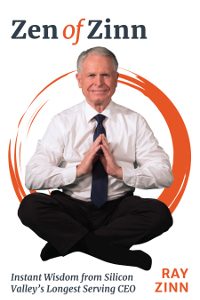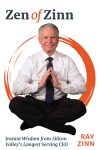Posted by Elena del Valle on July 23, 2018

Richard Marin, CEO, Low Emissions Resources Corporation
Photo: Richard Marin
A podcast interview with Richard Marin, CEO, Low Emissions Resources Corporation, is available in the Podcast Section of Hispanic Marketing & Public Relations, HispanicMPR.com. During the podcast, he discusses retirement is not for wimps with Elena del Valle, host of the HispanicMPR.com podcast.
Rich is a 42-year finance, real estate, and venture capital industry executive. He also is involved in managing private equity investments, consulting on major commercial real estate and attractions projects, and the retirement field.
Rich is a retired clinical professor from the Cornell’s Johnson Graduate School of Management, where he taught asset management, alternative assets, retirement and pensions and project financing. He authored Global Pension Crisis: Unfunded Liabilities and How We Can Fill the Gap. His latest book, Gulag 401k: Tales of a Modern Prisoner (Lulu Press, $20) was published in 2017.
To listen to the interview, scroll down until you see “Podcast” on the right hand side, then select “HMPR Richard Marin” and click on the play button below or download the MP3 file to your iPod or MP3 player to listen on the go, in your car or at home from the RSS feed. Some software will not allow flash, which may be necessary for the play button and podcast player. If that is your case, you will need to download the file to play it. To download it, click on the arrow of the recording you wish to copy and save it to disk. The podcast will remain listed in the July 2018 section of the podcast archive.
Posted by Elena del Valle on July 19, 2018

Zen of Zinn Instant Wisdom from Silicon Valley’s Longest Serving CEO
Photo: Ray Zinn
Ray Zinn spent decades as head of Micrel, a financially successful Silicon Valley company. Now that he is retired he founded ZinnStarter to provide seed funding to college students launching new products. The program, still in the initial stages, is at five universities with plans on expansion next year. As part of his efforts to reach a young demographic he spent two years writing Zen of Zinn Instant Wisdom from Silicon Valley’s Longest Serving CEO ($9.95), a 195-page softcover book published this year.
His target audience? “Anyone who seeks understanding and wisdom concerning the dynamics of people, society, business and culture,” Zinn said via a spokesperson by email. His goal was “To impart 37 years of executive insight and 50 years of Silicon Valley experience concerning how people, organizations and society are interconnected.”
The book is divided into an introduction and ten chapters titled: Leadership, Entrepreneurial Lift, Management, Startup Life, Discipline, Determination, Government and Society, People, and Life. Each chapter is made up of small segments of text, many of them a paragraph long.
“Two factors fed into the book’s conception,” he said when asked what prompted him to write a collection of short tips for the entire book. “First, along with my daily observations about business and Silicon Valley that I shared on social media, I offered my insights and experiences into the soft side of people. It were these latter elements to which people reacted most positively. The second factor is that in the 21st century, people want content in small, bite-sized pieces. Hence, I designed the book as a collection of memes, that can be read quickly remembered discretely and shared easily.”
When asked how his first and second books differ he said, “Tough Things First was my management and leadership opus, one specifically for business leaders from founders of brand new startups to seasoned executives. Zen of Zinn is for them as well, but also for the masses. Many parts of Zen of Zinn deal with the spiritual essence of humans, and how that shapes communities and organizations. Anyone looking for insight and uplift will find value in Zen of Zinn.”
When asked “You discuss dignity and respect in the book, how does that align with the lack of diversity in Silicon Valley and elsewhere?” he replied, “Indeed, part of my goal with Zen of Zinn and Tough Things First was to show that dignity is tied to profitability. Respecting the dignity of all people was a cultural foundation of my company, Micrel, and we were profitable 36 of our 37 years (and the one unprofitable year was a paper loss due to the closing of a redundant facility).
As you suggested, a lack of dignity and a lack of diversity are often interrelated. Any action that marginalizes people because of their differences is a form of disrespect and an afront to their dignity. This in turn results in lower diversity. This is a shame because diversity breeds innovation. Too many Silicon Valley companies are losing out because they do not encourage a corporate culture that values diversity.”
When asked to share wisdom based on personal experience regarding diversity he said, “Two elements come to mind. First, leaders have to put effort into making diversity work. It is not automatic. Simply proclaiming that your company embraces diversity is insufficient. It takes commitment, monitoring, corporate culture shaping, and real work. Second, it requires diversity being part of the corporate culture, part of the organization’s mind set. If you force diversity onto employees that don’t fully embrace it, you may cause more problems.”
When asked if Silicon Valley has peaked he replied, “I say the best parts of Silicon Valley are being cloned elsewhere (my ZinnStarter program is one small piece of this process). Silicon Valley will continue to be itself, but it will slowly quit being the epicenter of technical innovation. That will be everywhere smart people live.”

Click to buy Zen of Zinn
Comments:
Filed Under: Books
Posted by Elena del Valle on July 12, 2018

Monica Escaleras, Ph.D., director, FAU BEPI
Photo: College of Business at Florida Atlantic University
Researchers at Florida Atlantic University (FAU) believe Hispanic consumer confidence stalled in the second quarter of 2018 compared to the first quarter of the year. They drew their conclusions from a new national consumer sentiment index conducted by the Florida Atlantic University Business and Economics Polling Initiative (FAU BEPI) in FAU’s College of Business. The conclusions were derived from a recorded survey online and by landline of 850 Hispanics 18 years or older.
“Hispanics are less optimistic of their financial situation and the short-term economic outlook of the country,” said Monica Escaleras, Ph.D., director, FAU BEPI. “They’re concerned about what they perceive as a rising cost of living, gas prices and interest rates. All of this leads Hispanics to be less eager to consume more.”
The second quarter Hispanic Consumer Sentiment Index (HCSI) dropped from 98.9 in the first quarter to an 86.4 in the second quarter, according to the 11-page report titled Hispanics Consumer Confidence Stall in Second Quarter of 2018 Cost of Living on the Rise and Less Likelihood to Buy a House or Car. Information provided by the university indicates that the HCSI continues to trail the general population score of 98.2 as published by the University of Michigan in June 2018.
When asked by email how researchers identify respondents Escaleras said, “Respondents self-identify as Hispanics. Specifically, this is the question that we ask: Are you of Hispanic, Latino or Spanish origin? If the answer is yes, then they take the survey. If the answer is no, then the survey ends.”
The poll, available to respondents in English and Spanish, was funded by the Dean’s Office in College of Business at Florida Atlantic University, according Escaleras, who declined to disclose the budget for the project.
“We use two modes of data collection: online and landlines,” she said. “The online sample is supplied by Survey Sampling International. For the landlines, the Hispanic phone lists are supplied by Aristole, Inc and then the questions are recorded in both languages English and Spanish. Finally, the we use a computer software call Stratics to randomly pick phone numbers and call. The calls are automated and the questions are pre-recorded or what is call robocalling. IVR stands for Interactive Voice Response which is a technology that allows respondents to interact with surveyor (which pre-recorded the questions) via a telephone keypad or by speech recognition.”
Hispanics’ short-run economic outlook for the country dipped, with only 50 percent saying they expect the country as a whole to experience good business conditions in the upcoming year, down 11 points compared to the first quarter. Among survey takers 52 percent said they think it is good time to buy big-ticket items, compared to 69 percent in the first quarter.
Four out of five poll takers said the cost of living has gone up, a 21 percent rise since the first quarter. Per the press release, this perception, along with increasing concerns over their level of debt, rising gas prices and interest rate hikes, may explain why only 51 percent said they think it is a good time to buy a house (down from 59 percent in the first quarter), and only 49 percent said it is a good time to buy a car (down from 62 percent).
Sixty-eight percent of respondents said they were born in the United States; 65.5 percent self-identified as Mexican, Mexican-American or Chicano; 50.5 percent were men; 36.5 percent said they were employed full-time; 64 percent said they owned their home; and 42.5 percent were between 18 and 34 years of age.
According to a press release, the Florida Atlantic University Business and Economic Polling Initiative conducts surveys on business, economic, political and social issues with a focus on Hispanic attitudes and opinions at regional, state and national levels via planned monthly national surveys. Florida Atlantic University, established in 1961, officially opened its doors in 1964 as the fifth public university in Florida. The same release indicates the University serves more than 30,000 undergraduate and graduate students through 10 colleges at sites throughout its six-county service region in southeast Florida.













